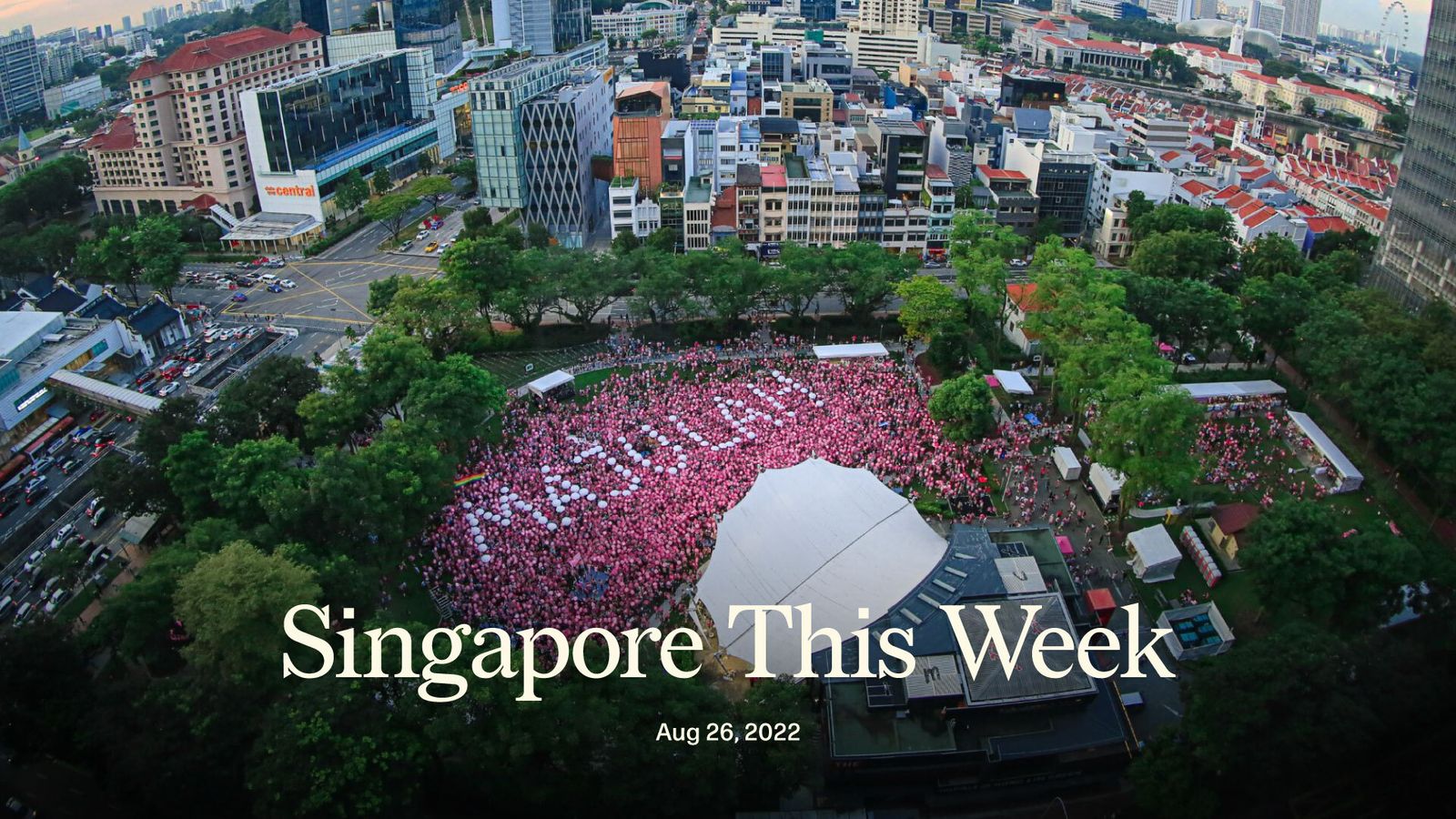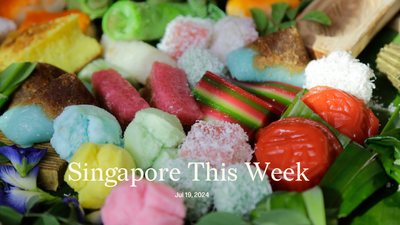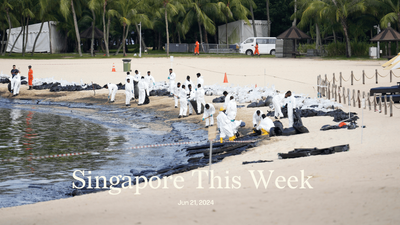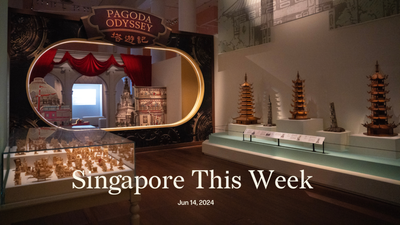Politics: Something to cheer, and still much to fear
In his National Day Rally speech, Lee Hsien Loong, the prime minister, confirmed Singapore’s worst-kept secret: the government will finally repeal S377A, the colonial-era law that criminalises sex between men. It was cause for celebration by the activists, lawyers and assorted allies who have for years pushed for it. But the government’s effort to placate religious conservatives, who want to further entrench heteronormativity in society, suggests that the celebrations ought to be muted. Read Jom’s editorial on the repeal here.
Politics: The rest of the rally
Lee spoke about the challenging external environment by describing Russia’s invasion of Ukraine, and offering a cogent defence for why Singapore so quickly condemned it. The government did so, admirably, in the face of opposition by some who, fed by Chinese social media, felt Singapore should remain neutral. Less impressive was Lee’s fixation on Singapore’s supposed vulnerabilities: “...look at how things have gone wrong in Europe, how suddenly and quickly. Can you be sure that things cannot go wrong like that in our region too?” Georgia, Crimea, and Ukraine may have surprised some, dear prime minister, but they were neither sudden nor quick. Inflation is more of a concern to Singaporeans than gay rights and National Service. To help, the government is offering further financial support to low- and middle-income families. It has redoubled efforts to attain its “30 by 30” goal: to produce locally 30 percent of Singapore’s nutritional needs by 2030. Exuding confidence about food blockades, Lee said: “...when live chickens stopped arriving from Malaysia, we did not flap.”
Society: We’re all racists
Forty-seven-year-old Connie Soh faces a maximum fine of S$1,500 for elbowing an Indian woman and up to three months in jail for using a racial insult on her, both done as they were alighting a bus. Lest readers think only Chinese can be racists, The Straits Times felt compelled to mention in its article two completely unrelated incidents: one involving racism from an Indian man last year, and another from a Malay man in 2018. Is this what ST’s diversity training is about? For once, Eurasians will be thankful that they’ve been left out.
Society: To mask or not to mask?
From Monday we’re throwing masks to the wind. The government has said they will have to be worn only in two settings: on public transport and in healthcare facilities. Masks will no longer be required when travelling on other transport modes, including taxis, school buses, and (some) flights. The government has also encouraged the public to wear a mask in crowded situations, or when interacting with vulnerable people. These new rules may sound arbitrary though they effectively devolve power to the individual. Instead of being forced to mask up while you walk to a dining table, only to remove it as soon as you start chomping and chatting, you can now exercise more agency and discretion. So, from August 29th, if a cabbie asks you to mask up, you’re not legally bound to—but you can out of concern and kindness.
Internet culture: Are you for real?
Tired of the filters, posturing, and general “highlight reel” nature of social media platforms, like Instagram? You might enjoy BeReal, a photo app that is gaining popularity. Users receive a notification at a random time every day and have to take a photo—with both their front-facing and rear cameras—wherever they are. While other social media feeds might feature sun-drenched holiday pictures, BeReal photos are much more mundane. Expect photos of your friends bored on the MRT or in front of a laptop. For younger users used to mediating their lives and keeping in touch with their peers through social media, it’s a welcome reprieve from the pressure to live an enviable life.
Internet culture: Critical theory
The New York Times film critic Lena Wilson is this week’s main character on the internet. After calling indie studio A24’s latest film “Bodies Bodies Bodies” “a 95-minute advertisement for cleavage”, the writer received a message from one of the film’s stars, Amandla Stenberg, suggesting that “if [she] had gotten [her] eyes off [Stenberg’s] tits [she] could’ve watched the movie”. Wilson then shared a screenshot of this conversation on both her Twitter and TikTok accounts, suggesting that Stenberg, who is herself queer, was homophobic for picking up on that line in the review. Disagreements between artists and critics are commonplace but this one has sparked a conversation online about how critics should best respond to being critiqued themselves. So far, Wilson has not taken it well, first by turning off comments on her posts before subsequently making her accounts private. All this may seem a world away from Singapore, but online discursive norms have a way of diffusing and evolving organically across the borderless World Wide Web.
Arts: Popcorn time
The iconic grand dame of cinema herself, The Cathay Cineplex, was a recent casualty of the Orchard Road slump. Taking its place is the latest pop-up from The Projector, an indie cinema darling. Projector X: Picturehouse soft launched on August 19th with a screening of “Scene Unseen”, a documentary about independent Singaporean bands, a panel discussion, and a live DJ set. Projector X: Picturehouse will screen a variety of independent, cult, and mainstream films, in addition to hosting live events, such as spoken word and open mic nights, cabarets, and music.
Arts: SEA song
What are the acoustics like in hell? Music lovers will soon get to find out at the first in-person ASEAN Music Showcase Festival, held at the Chinese mythology-themed Haw Par Villa on September 10th-11th. Crowds can expect a full roster of emerging and established artists from across South-east Asia, as well as Taiwan, India, and Australia. Six acts, like instrumental rock band Amateur Takes Control and rapper BGourd, will represent Singapore, but Indonesia and the Philippines both top the table with seven each. Tickets are available from SISTIC and begin at S$35 for a standard day pass.
History weekly by Faris Joraimi
We still don’t have a detailed history of S377A. But activists, artists and writers have unearthed accounts of its application since it was enacted in 1938. Ironically, it’s S377A that has left us clues about old Singapore’s invisible gay life. Oftentimes the law exposes things that would rather remain hidden. Among the ill-fated names to come down to us are Tan Ah Yiow and Sudin Bin Daud, the first Asians in Singapore documented to have committed the historical offence of homosexuality. But not with each other. In 1941, the police found Tan in a room with a European in a “low-down quarter” of the city. He was sentenced to nine months in jail. Sudin got double that for a one-night involvement with Captain Douglas Marr, a British military-policeman, in the latter’s Tanglin Hill quarters. Neither European was convicted. In the press coverage that followed, prosecutors went beyond calling gay sex by its legal term: “a gross indecency”. It was also “an abominable type of vice” and “a disgusting and revolting practice.” Gay men were called “animals of the same ilk as the accused.” May similar words never be printed in our papers, nor heard again in parliament.
Tech: A good citizen
Google celebrated its 15th year of operations in Singapore, having grown from 24 people in 2007 to over 3,000 today at its Pasir Panjang office. Google’s upcoming initiatives tie in well with the government’s push for AI development, worker reskilling, and better online literacy. For instance, new AI technologies for the finance and healthcare sectors, developed in partnership with the government, will boost the public sector’s machine-learning proficiency and help shape its ethical guidelines for AI. Google will also continue its Skills Ignition SG programme, which trains people in digital marketing, or professional cloud architecture. The tech giant will also be reaching out to parents and children to educate them in online safety, given their increasing exposure to fake news and misinformation. Google also announced the completion of its third data centre in Singapore bringing its total investment here to US$850m (S$1.19bn). Aside from those years when it sponsored Pink Dot, Google’s been a model MNC.
Tech: Growing pains
The journey to “30 by 30” is thorny. Agritech start-ups currently face bureaucratic challenges from having to deal with an alphabet soup of regulators, ranging from the Singapore Food Agency to the Singapore Civil Defence Force. One indoor farm start-up had to wait nine months to get their farming licence, according to Tech in Asia. Macroeconomic challenges haven’t helped. Amid the global energy crisis, wholesale power prices for one high-tech farm rose four-fold. Growing vegetables in labour- and land-scarce Singapore was already expensive. High-tech farmers nonetheless acknowledge government support in connecting businesses to investors. The founder of eFishery, an aquaculture company, called Temasek “the best and most aggressive agri-tech investor in the world right now.” Only time will tell whether capital alone can help these farms deepen their roots in Singapore.
Tech: Chinese money
Are tech financiers leaving China? Given the ongoing, unfriendly tech business climate, strict Covid-19 quarantine policies, and trauma from the ban on online tutoring and crypto start-ups, Chinese VCs (venture capitalists) are increasingly looking for opportunities abroad. They might follow the ultra-rich Chinese individuals eyeing a move to Singapore, which previous reports suggest could lead to capital inflows up to US$2.4bn (S$3.34bn). Leading VCs that may move include GSR Ventures and Matrix Partners, who both invested in ride-hailing app Didi and food delivery service Ele.me; and Source Code Capital, which invested in social media giant Bytedance. While start-ups in Singapore will rejoice at the abundance of capital, local VCs—already trying to fend off western VCs, such as Lightspeed and Accel—will face further competition on deals.
Tech: A show of care
Leading food delivery platforms Deliveroo, Foodpanda and Grab just created a new association called the Digital Platforms Industry Association (DPIA). DPIA claims it wants to better reflect the voices of its delivery partners and merchants. But there is already a National Delivery Champions Association, under the NTUC Freelancers and Self-Employed Unit, that represents food- and package-delivery freelancers. Will DPIA make unique contributions to the welfare of delivery drivers? Or is it more a front to manage government and worker relations? It’s still unclear how much representation drivers and restaurants will have. We certainly shouldn’t expect the sorts of labour rights gains we’ve seen in countries where sharing economy workers can unionise. It’s one reason these tech platforms like being here.
If you enjoy Jom’s work, do get a paid subscription today to support independent journalism in Singapore.







